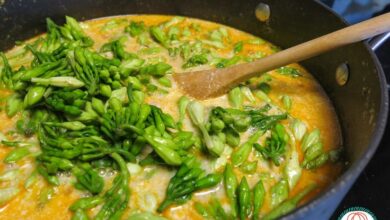Eucalyptus Tea: Exploring its Origins and Cultural Significance in Australia

Welcome to a journey through the rich history and cultural significance of eucalyptus tea in Australia! In this blog post, we will delve into the origins of this aromatic beverage, which has been cherished by Indigenous communities for centuries.
Join us as we uncover the traditions and stories associated with this unique drink that not only tantalizes taste buds but also holds a special place in Australian culture. So grab your cuppa, sit back, and let’s immerse ourselves in the world of Eucalyptus tea!
Introduction to Eucalyptus Tea
Eucalyptus tea is a popular herbal infusion that has been enjoyed for centuries in Australia and around the world. This unique tea is made from the leaves of Eucalyptus trees, which are native to Australia but can now be found in many other parts of the world due to their various medicinal properties.
The use of eucalyptus as a medicinal herb dates back thousands of years among Indigenous Australian communities. The leaves were used for treating a range of ailments, including respiratory issues, fevers, and wounds.
It wasn’t until European settlers arrived in Australia in the 18th century that eucalyptus gained widespread recognition and became an important part of traditional medicine.
The cultural significance of eucalyptus in Australia cannot be overstated. The tree has long been revered by Indigenous Australians as a symbol of healing and strength. Its distinctive scent, refreshing taste, and powerful health benefits have made it an integral part of their culture and traditions.
In addition to its historical importance, eucalyptus tea has also become a staple beverage for many Australians today. It is commonly consumed during cold and flu season due to its soothing effects on coughs and congestion. It is also enjoyed as a hot or iced drink all year round for its refreshing taste and potential health benefits.
The Origins of Eucalyptus Tea in Australia
The origins of eucalyptus tea in Australia can be traced back to the indigenous Australian people, who have been using various parts of the eucalyptus tree for medicinal purposes for thousands of years. Eucalyptus leaves were traditionally used to treat respiratory issues, such as colds and coughs, as well as aches and pains.
With the arrival of European settlers in the late 18th century, eucalyptus was introduced to Western medicine and became popularized as a natural remedy for various ailments. The first recorded use of tea was by an English explorer named Captain Cook during his voyage to Australia in 1770. He observed the Aboriginal people brewing tea from eucalyptus leaves and noted its medicinal properties.
However, it wasn’t until the mid-19th century that eucalyptus tea started gaining traction among non-indigenous Australians. In 1852, Joseph Bosisto, a pharmacist from Melbourne, discovered the antiseptic properties of eucalyptus oil extracted from the leaves and began producing it on a commercial scale. This led to the development of various eucalyptus-based products, including teas.
Cultural Significance of Eucalyptus Tea in Australia
It is a popular herbal beverage in Australia that holds significant cultural importance for the country. The use of eucalyptus leaves for medicinal and therapeutic purposes has been a part of Australian Indigenous cultures for centuries, and this tradition continues to be cherished and celebrated today.
The Eucalyptus tree, also known as the ‘gum tree’ or ‘blue gum’, is native to Australia and its leaves are highly valued for their healing properties. The aromatic oil extracted from the leaves has been used by Indigenous Australians for treating various ailments such as coughs, colds, and respiratory infections. It was also used as an insect repellent and to alleviate muscle pains and headaches.
With the arrival of European settlers in Australia in the late 18th century, this tea gained popularity among non-Indigenous communities. The settlers were fascinated by the medicinal benefits of eucalyptus leaves and started incorporating them into their home remedies. Soon, eucalyptus tea became widely recognized as a natural remedy for colds, flu, sore throats, and other respiratory issues.
Today, eucalyptus tea remains an integral part of traditional Australian medicine with its use extending beyond just physical health benefits. In many Aboriginal cultures, it is believed that drinking eucalyptus tea can also have spiritual cleansing effects on the mind and soul.
Health Benefits of Eucalyptus Tea
Eucalyptus tea has been consumed for centuries in Australia and is known for its unique taste and aroma. But aside from being a refreshing beverage, it also offers numerous health benefits. In this section, we will delve deeper into the various health benefits of eucalyptus.
1. Boosts Immune System
One of the main health benefits of eucalyptus tea is its ability to boost the immune system. Eucalyptus leaves contain high levels of antioxidants, which help fight against free radicals in the body that can cause cellular damage and weaken the immune system. Regular consumption of eucalyptus tea can help strengthen your body’s defense against illnesses and infections.
2. Relieves Respiratory Issues
Eucalyptus is often used as an ingredient in cough drops and throat lozenges due to its ability to relieve respiratory issues such as coughs, colds, and congestion. Drinking eucalyptus tea can provide similar relief by clearing out mucus build-up in the lungs and sinuses, making it easier to breathe. Its anti-inflammatory properties also help reduce swelling in the respiratory tract, providing further relief from respiratory problems.
3. Soothes Sore Throat
As mentioned earlier, eucalyptus contains anti-inflammatory compounds that can soothe a sore throat. The warm liquid from drinking eucalyptus tea can coat your throat with a protective layer.
How to Make Eucalyptus Tea
Eucalyptus tea, also known as gum leaf tea, is a popular herbal infusion in Australia. It is made from the leaves of the eucalyptus tree, which is native to Australia and has been used for its medicinal properties by Indigenous Australians for centuries. In this section, we will explore how to make eucalyptus tea and enjoy its many health benefits.
Ingredients:
- Fresh or dried eucalyptus leaves
- Water
- Honey (optional)
- Lemon (optional)
Step 1: Gather Eucalyptus Leaves
The first step in making eucalyptus tea is to gather fresh or dried eucalyptus leaves. If you live in Australia, you can easily find these leaves in nature or purchase them from local markets. For those outside of Australia, dried eucalyptus leaves can be purchased online or at specialty herbal stores.
Step 2: Prepare the Leaves
If using fresh eucalyptus leaves, rinse them thoroughly with water and pat dry. If using dried leaves, there is no need to wash them. Next, remove any stems or debris from the leaves and crush them slightly with your hands to release their natural oils and flavors.
Step 3: Boil Water
In a medium-sized pot or kettle, bring water to a boil on high heat. The amount of water needed depends on how strong you want your tea to be and how many cups you are making.
Different Variations and Flavors of Eucalyptus Tea
Eucalyptus tea is a popular herbal infusion that has been enjoyed for centuries, particularly in Australia where the eucalyptus plant is native. While the traditional form of eucalyptus tea is made by steeping leaves from the eucalyptus tree in hot water, there are many different variations and flavors of this versatile beverage.
One of the most common variations of eucalyptus tea is peppermint eucalyptus tea. This blend combines the refreshing taste of peppermint with the distinct aroma and flavor of eucalyptus to create a soothing and invigorating brew. Peppermint eucalyptus tea is commonly used as a natural remedy for respiratory issues such as coughs, congestion, and sore throats due to its anti-inflammatory properties.
Another popular variation is lemon eucalyptus tea, which adds a citrusy twist to the classic drink. The zesty flavor of lemon complements the earthy notes of eucalyptus, making it a refreshing and uplifting beverage. Lemon eucalyptus tea is also known for its immune-boosting benefits and can help alleviate symptoms of colds and flu.
Alternative Uses for Eucalyptus Leaves and Oil
Eucalyptus leaves and oil has been used for centuries in traditional medicine and as a natural remedy for various ailments. However, their uses go beyond just medicinal purposes. In this section, we will explore some alternative uses for eucalyptus leaves and oil that may surprise you.
1. Aromatherapy:
One of the most popular alternative uses for eucalyptus leaves and oil is in aromatherapy. The strong, refreshing scent of eucalyptus has a calming effect on the mind and can help alleviate stress and anxiety. It is also known to improve mental clarity and focus. You can add a few drops of eucalyptus oil to your diffuser or create a homemade room spray by mixing it with water.
2. Household Cleaner:
Eucalyptus oil has powerful antibacterial properties which make it an effective natural cleaner. You can use it to make your own all-purpose cleaning spray by combining equal parts of water and vinegar with a few drops of eucalyptus oil. This solution can be used on surfaces such as countertops, floors, and even windows.
3. Insect Repellent:
The strong scent of eucalyptus acts as a natural insect repellent, making it an excellent alternative to chemical-based bug sprays. You can mix a few drops of eucalyptus oil with a carrier oil such as coconut or jojoba oil and apply it to exposed skin before heading outdoors.
Conclusion
Eucalyptus tea has a long-standing history in Australia and its cultural significance cannot be denied. From its origins as a traditional medicine used by Indigenous Australians to its modern-day popularity as a refreshing and healthy beverage, eucalyptus tea is a must-try for anyone looking to experience the unique flavors and benefits of this distinct Australian plant.
One of the main reasons why you should try eucalyptus tea is because of its numerous health benefits. Eucalyptus leaves contain essential oils that have strong antibacterial, anti-inflammatory, and antioxidant properties.
You Might Also Like:




